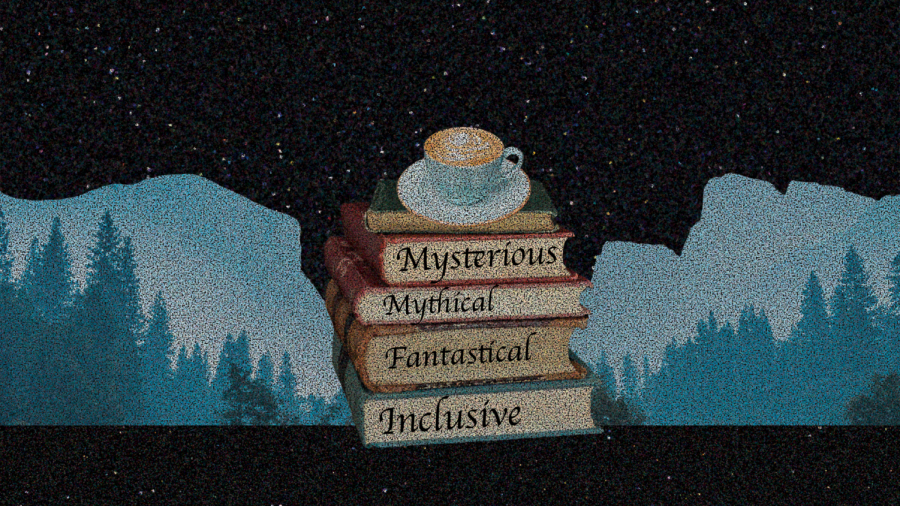Calling a novel “banned” is a bold claim with many strings attached. Why did this book get banned in the first place? Who were the people that banned it? These questions crossed my mind when stumbling upon an event at a local bookstore: Banned Books Club. The LGBTQ-owned bookstore Legendarium picks a book from its shelves every so often to highlight a book that wouldn’t otherwise get recognition. With a flashy label like “banned,” my interest was piqued.
The book of discussion was “Her Majesty’s Royal Coven” by Juno Dawson. The book follows a group of English witches in turmoil, as one group of them strives to preserve the traditional values of the coven, while another wants to do best by their fellow witches, but ultimately rejects the values set in stone hundreds of years ago.
As an outsider who didn’t read the book, it felt like an urban fantasy novel not too dissimilar to that of “The Mortal Instruments” series minus all the love triangles, gratuitous romances and other YA tropes. So why exactly was “Her Majesty’s Royal Coven” so controversial? Most apparently for themes of witchcraft, but even more blatant was for the queerness of its characters.
Book Bans Spreading like Wildfire
Unfortunately, this has become a common trend across American bookstores and libraries across the country, including in Utah. After the passage of bill H.B. 374, school districts have been banning books with “pornographic” materials in them left and right. This law has enabled all kinds of bans from biological textbooks to fictional novels. Orion Enceladus, co-founder of the Legendarium, explained these bans in further detail.
“What happens often … is that a parent will complain about a particular book and a committee takes it off the shelves to review it,” he said.
He also emphasized that the rate at which schools are getting these complaints has been astronomical.
“Because nobody has time to review over 500 books, they just sit there and become inaccessible to kids,” Enceladus said.
Fighting the Fire
It was shortly after this legislation got passed that the founders of Legendarium decided it was time to open up a bookstore of their own, and subsequently, to start the Banned Books Club. The bookstore specializes in fantasy, science fiction and horror — all genres that have good track records of promoting non-traditional stories. Of course, many of the books on their shelves have been banned by several school districts in the United States, but this is intentional.
“We want people to come in and see themselves in a book,” Enceladus said. “Even if you don’t see yourself in these stories, you still process another human’s experience and develop empathy [for them].”
Promoting banned material isn’t about promoting things that are taboo for the sake of being risque or provocative. In this case, it’s to connect to an author’s telling of experiences many queer people go through every day. Issues I’ve never faced as a cis, straight white guy sounded alien to me, but to many of the LGBTQ members at the book club, they were common sense. Why can’t that be the case for cis straight white guys like me too?
If you’re looking to support a local business, find your next read or grab a cup of coffee surrounded by Renaissance portraits of Star Wars characters, visit Legendarium.



